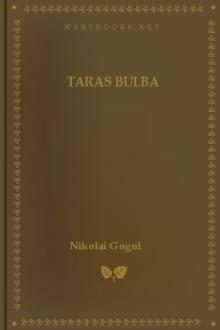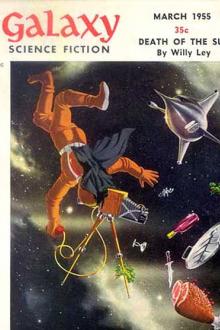Genre Fiction. Page - 230

edlework, and the lower part of her pretty delicate face. He recalled their conversations that dragged on like the game in which one passes on a stick which one keeps alight as long as possible, and the general awkwardness and restraint and his continual feeling of rebellion at all that conventionality. Some voice had always whispered: "That's not it, that's not it," and so it had proved. Then he remembered a ball and the mazurka he danced with the beautiful D----. "How much in love I was that night and how happy! And how hurt and vexed I was next morning when I woke and felt myself still free! Why does not love come and bind me hand and foot?" thought he. "No, there is no such thing as love! That neighbour who used to tell me, as she told Dubrovin and the Marshal, that she loved the stars, was not IT either." And now his farming and work in the country recurred to his mind, and in those recollections also there was nothing to dwell on with pleasure. "Will they talk long of my departure?" came into his head;

strate woman and look in her face. "This woman is not dead."
"What!" they both cried, bounding forward.
"See, she breathes," continued the former, pointing to her slowly laboring chest. "The villain, whoever he was, did not do his work well; she may be able to tell us something yet."
"I do not think so," murmured Mr. Orcutt. "Such a blow as that must have destroyed her faculties, if not her life. It was of cruel force."
"However that may be, she ought to be taken care of now," cried Mr. Ferris. "I wish Dr. Tredwell was here."
"I will go for him," signified the other.
But it was not necessary. Scarcely had the lawyer turned to execute this mission, when a sudden murmur was heard at the door, and a dozen or so citizens burst into the house, among them the very person named. Being coroner as well as physician, he at once assumed authority. The widow was carried into her room, which was on the same floor, and a brother practitioner sent for, who took his place at her head

from theNorth. Every bond between them was broken; two kingdoms wereestablished under a single name--Russia--one under the Tatar yoke, theother under the same rule with Lithuanians. But actually they had norelation with one another; different laws, different customs,different aims, different bonds, and different activities gave themwholly different characters."
This same Prince Guedimin freed Kieff from the Tatar yoke. This cityhad been laid waste by the golden hordes of Ghengis Khan and hiddenfor a very long time from the Slavonic chronicler as behind animpenetrable curtain. A shrewd man, Guedimin appointed a Slavonicprince to rule over the city and permitted the inhabitants to practisetheir own faith, Greek Christianity. Prior to the Mongol invasion,which brought conflagration and ruin, and subjected Russia to atwo-century bondage, cutting her off from Europe, a state of chaosexisted and the separate tribes fought with one another constantly andfor the most petty reasons. Mutual depredatio

oor, when, giving each mouse as it went out a little tap with her wand, the mouse was that moment turned into a fine horse, which altogether made a very fine set of six horses of a beautiful mouse-colored dapple-gray. Being at a loss for a coachman, Cinderella said:
"I will go and see if there is never a rat in the rattrap--we may make a coachman of him."
"Thou art in the right," replied her Godmother. "Go and look."
Cinderella brought the trap to her, and in it there were three huge rats. The fairy made choice of one of the three which had the largest beard, and having touched him with her wand he was turned into a fat, jolly coachman, who had the smartest whiskers eyes ever beheld. After that she said to her:
"Go again into the garden, and you will find six lizards behind the watering-pot. Bring them to me."
She had no sooner done so but her Godmother turned them into six footmen,who skipped up immediately behind the coach, with their liveries all bedaubed with gold and si

osed to have been called so because it is a rock like a pulpit. When you have reached it you will know that you are on the very edge of civilisation, and that very little more will take you into the country of the Dervishes, which will be obvious to you at the top. Having passed the summit, you will perceive the full extremity of the second cataract, embracing wild natural beauties of the most dreadful variety. Here all very famous people carve their names,--and so you will carve your names also."
[Illustration: So you will carve your names also p26]
Mansoor waited expectantly for a titter, and bowed to it when it arrived. "You will then return to Wady Haifa, and there remain two hours to suspect (sp.) the Camel Corps, including the grooming of the beasts, and the bazaar before returning, so I wish you a very happy good-night." There was a gleam of his white teeth in the lamplight, and then his long, dark petticoats, his short English cover-coat, and his red tarboosh vanished successively down t

the tutor of Aglaea. Agathon, Aglaea's father, they say has left her great wealth. Aglaea is adorable. I idolize Aglaea. I must marry Aglaea and I must deal tactfully with Socrates while waiting to hang him.
DRIXA: Deal tactfully with Socrates in order that I may have my young man. But why did Agathon allow his daughter into the clutches of that old, flat nosed Socrates, that insufferable fault-finder who corrupts the young and prevents them from frequenting courtesans and the holy mysteries?
ANITUS: Agathon was infatuated with the same principles. He was one of those sober and serious types who have different morals from ours; who are from another country, and who are our sworn enemies, who think they've fulfilled all their duties when they've adored divinity, helped humanity, cultivated friendship and studied philosophy; one of those folks who insolently pretend that the gods have not inscribed the future in the liver of an ox; one of those pitiless dialecticians who find fault with priests f

is inclined to grumble, but do not mindthat, Barbara. God bless her, for she is an excellent soul!
But what sort of an abode have I lighted upon, Barbara Alexievna?What sort of a tenement, do you think, is this? Formerly, as youknow, I used to live in absolute stillness--so much so that if afly took wing it could plainly be heard buzzing. Here, however,all is turmoil and shouting and clatter. The PLAN of the tenementyou know already. Imagine a long corridor, quite dark, and by nomeans clean. To the right a dead wall, and to the left a row ofdoors stretching as far as the line of rooms extends. These roomsare tenanted by different people--by one, by two, or by threelodgers as the case may be, but in this arrangement there is nosort of system, and the place is a perfect Noah's Ark. Most ofthe lodgers are respectable, educated, and even bookish people.In particular they include a tchinovnik (one of the literarystaff in some government department), who is so well-read that hecan expound Homer or

d when writing the present tale, the gratuities received yearly by the musicians at Christmas were somewhat as follows: From the manor-house ten shillings and a supper; from the vicar ten shillings; from the farmers five shillings each; from each cottage-household one shilling; amounting altogether to not more than ten shillings a head annually--just enough, as an old executant told me, to pay for their fiddle-strings, repairs, rosin, and music-paper (which they mostly ruled themselves). Their music in those days was all in their own manuscript, copied in the evenings after work, and their music-books were home-bound.
It was customary to inscribe a few jigs, reels, horn-pipes, and ballads in the same book, by beginning it at the other end, the insertions being continued from front and back till sacred and secular met together in the middle, often with bizarre effect, the words of some of the songs exhibiting that ancient and broad humour which our grandfathers, and possibly grandmothers, took delight i

ns to be noticed, the writer of editorials. News items are confined to facts. Editorials contain expressions of opinion. Everybody reads news, because it speaks for itself. Editorials are designed to mould public opinion. Unless they are characterized by extreme good sense or brilliancy, nobody heeds them, though, if he makes a mistake in one, the writer of editorials is apt to conclude that everybody reads them. The writer of editorials must therefore be a person of exceptional qualifications.
III. Class Organization
For the present the teacher of the class studying this book may act as city editor and the pupils as reporters. Later, perhaps, a more formal organization may be effected, with pupils as managing editor, assistant managing editor, city editor, etc.
IV. Newspaper Coöperation
The editor of the local paper will probably be willing to print any really good material that the class produces. If possible, an arrangement for this purpose should be made with him

ch it."
"If it didn't scare them off," Hudson pointed out. "The last few feet showed nothing but the inside of his throat."
Ex-ambassador Hudson looked unhappy. "I don't like the whole setup. As soon as we bring someone in, the news is sure to leak. And once the word gets out, there'll be guys lying in ambush for us--maybe even nations--scheming to steal the know-how, legally or violently. That's what scares me the most about those films I lost. Someone will find them and they may guess what it's all about, but I'm hoping they either won't believe it or can't manage to trace us."
"We could swear the hunting parties to secrecy," said Cooper.
"How could a sportsman keep still about the mounted head of a saber-tooth or a record piece of ivory?" And the same thing would apply to anyone we approached. Some university could raise dough to send a team of scientists back here and a movie company would cough up plenty to use this place as a location for a caveman epic. But it wouldn't be wo